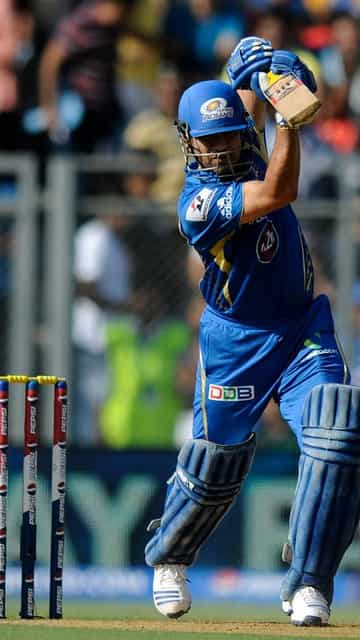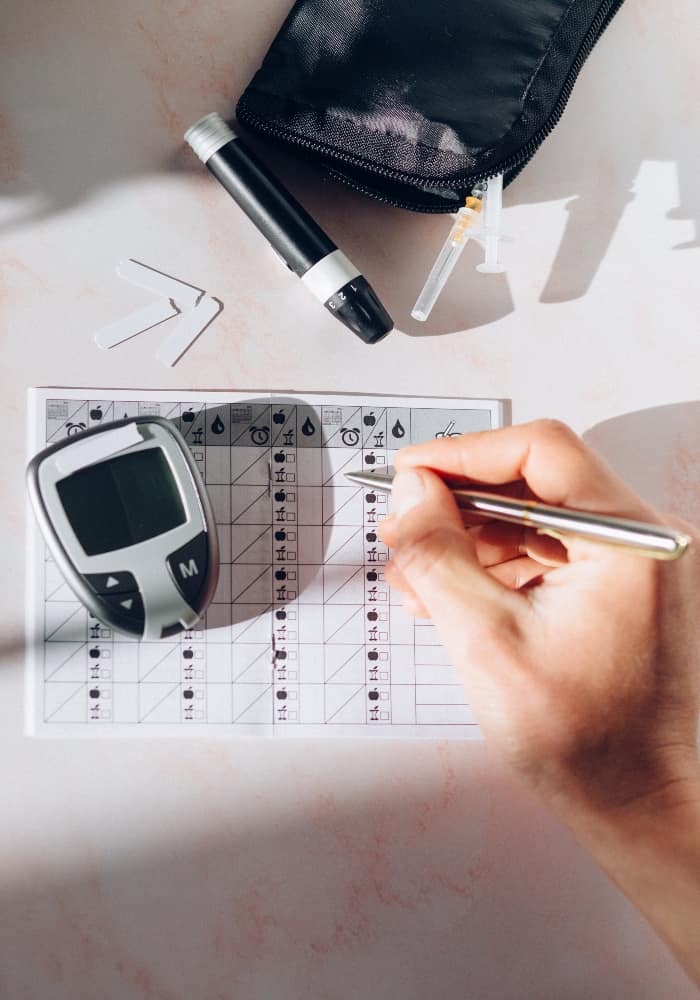Doctors claimed that though these machines are not as accurate as cart-based sonography machines, they can still be used for sex determination.
- March 2017: The Pune rural police arrested government doctor Madhukar Shinde for conducting banned sex determination tests on pregnant women.
- January 2016: The Solapur police nab seven people, including four doctors in a sex determination racket.
- July 2015: The Kolhapur police arrest seven people for this offence.
While pointing to gender determination and female foeticide rackets operating under the radar in Maharashtra, these incidents have another common thread running through them - the use of portable, unregistered sonography machines.
These machines, which are imported from countries like China, are often used by unqualified medical practitioners like Ayurvedic and Homoeopathic doctors and even quacks to "diagnose" the sex of the foetus. Adding to the worry of the authorities, these machines, which can be purchased online or at trade fairs for less than a lakh, can be used for sex determination in locations like mobile vans, fields and even houses without the authorities getting a whiff.
Doctors claimed that though these machines are not as accurate as cart-based sonography machines, they can still be used for sex determination.
Though portable sonography machines are permitted, they have to be registered and used only within the hospital premises with exceptions being made only in cases involving public interest. Registration is mandatory for manufacturers and dealers with purchases being made from them.
Sources said these rackets involve a well-oiled network of agents who identify couples with one or more girl children who desire a male child. Such pregnant women are lured with the promise of sex determination after which the female foetus can be aborted. However, there is no honour among these criminals—some falsely pass off the male foetus as a female one to recommend an abortion for a cut.
These terminations of pregnancy may be conducted by doctors or unqualified medical practitioners.
Abortion may be induced and the woman is taken to a public hospital to disguise it as a miscarriage according to a study conducted by PGIMER Chandigarh in 2016.
"Unregistered machines are being used by untrained doctors in locations outside hospitals," admitted Dr Satish Pawar, director general, health services, Maharashtra. Admitting to reports of these machines being purchased from Delhi for use in Maharashtra, he noted that while authorities kept a check on registered sonography machines and their paperwork, it was difficult to detect such unregistered, portable machines.
"Portable machines, sourced from the underground market, are like laptops which makes them easy to use in rural areas," a radiologist noted, adding that decoy cases were the only way to bust the nexus.
"These machines are being misused by unqualified doctors," affirmed Dr Jignesh Thakker, president, Indian Radiological and Imaging Association, questioning how the authorities were unaware of this.
Activist Varsha Deshpande, a member of the PCPNDT Act's National Inspection and Monitoring Committee, noted that in a case registered at Kolhapur, the accused was found to have purchased the machine at a government-held trade fair in Delhi.
"There are people who want a son at any cost and access to these machines is very easy," said Dr Sutapa B Neogi, associate professor, Indian Institute of Public Health, Delhi, stressing that making district health officials accountable could be a solution. Dr Abhay Shukla of the Jan Swasthya Abhiyan (JSA) believes a solution laid in involving ordinary citizens and ethical doctors for reporting such crimes.
Pawar said they would involve village-level workers like Anganwadi staffers, Accredited Social Health Activists (ASHA), auxiliary nurse midwives (ANM) for intelligence gathering.
Health Minister Dr Deepak Sawant could not be contacted for his comments.
The Pre-Natal Diagnostic Techniques (Regulation and Prevention of Misuse) Act, 1994 aims at preventing misuse of pre-natal sex determination techniques for gender determination and female foeticide. The problem's intensity can be gauged from the health department's estimates that considering the average expected sex ratio of 952 and the child sex ratio of 883 in the 2011 census, Maharashtra may have seen around 4,06,566 female foeticides between 2001 and 2011.
Maharashtra's general sex ratio declined from 934 in 1991 to 922 in 2001 but marginally rose to 925 in 2011. In contrast, India's sex ratio increased from 927 in 1991 to 933 in 2011 and 940 in 2011. The state's child sex ratio (ratio of girls to boys between zero to six years) fell from 946 in 1991 to 913 in 2001 and 883 in 2011 as against 914 in 2011, 927 in 2001 and 946 in 1991 for India.
![submenu-img]() US imposes sanctions on Chinese, Belarus firms for providing ballistic missile tech to Pakistan
US imposes sanctions on Chinese, Belarus firms for providing ballistic missile tech to Pakistan![submenu-img]() 'Don't have any comment': White House mum on reports of Israeli strikes in Iran
'Don't have any comment': White House mum on reports of Israeli strikes in Iran![submenu-img]() Yes Bank co-founder Rana Kapoor gets bail after four years in bank fraud case
Yes Bank co-founder Rana Kapoor gets bail after four years in bank fraud case![submenu-img]() Barmer Lok Sabha Polls 2024: Check key candidates, date of voting and other important details
Barmer Lok Sabha Polls 2024: Check key candidates, date of voting and other important details![submenu-img]() This star once lived in garage, earned Rs 51 as first salary; now charges Rs 5 crore per film, is worth Rs 335 crore
This star once lived in garage, earned Rs 51 as first salary; now charges Rs 5 crore per film, is worth Rs 335 crore![submenu-img]() DNA Verified: Is CAA an anti-Muslim law? Centre terms news report as 'misleading'
DNA Verified: Is CAA an anti-Muslim law? Centre terms news report as 'misleading'![submenu-img]() DNA Verified: Lok Sabha Elections 2024 to be held on April 19? Know truth behind viral message
DNA Verified: Lok Sabha Elections 2024 to be held on April 19? Know truth behind viral message![submenu-img]() DNA Verified: Modi govt giving students free laptops under 'One Student One Laptop' scheme? Know truth here
DNA Verified: Modi govt giving students free laptops under 'One Student One Laptop' scheme? Know truth here![submenu-img]() DNA Verified: Shah Rukh Khan denies reports of his role in release of India's naval officers from Qatar
DNA Verified: Shah Rukh Khan denies reports of his role in release of India's naval officers from Qatar![submenu-img]() DNA Verified: Is govt providing Rs 1.6 lakh benefit to girls under PM Ladli Laxmi Yojana? Know truth
DNA Verified: Is govt providing Rs 1.6 lakh benefit to girls under PM Ladli Laxmi Yojana? Know truth![submenu-img]() Remember Ali Haji? Aamir Khan, Kajol's son in Fanaa, who is now director, writer; here's how charming he looks now
Remember Ali Haji? Aamir Khan, Kajol's son in Fanaa, who is now director, writer; here's how charming he looks now![submenu-img]() Remember Sana Saeed? SRK's daughter in Kuch Kuch Hota Hai, here's how she looks after 26 years, she's dating..
Remember Sana Saeed? SRK's daughter in Kuch Kuch Hota Hai, here's how she looks after 26 years, she's dating..![submenu-img]() In pics: Rajinikanth, Kamal Haasan, Mani Ratnam, Suriya attend S Shankar's daughter Aishwarya's star-studded wedding
In pics: Rajinikanth, Kamal Haasan, Mani Ratnam, Suriya attend S Shankar's daughter Aishwarya's star-studded wedding![submenu-img]() In pics: Sanya Malhotra attends opening of school for neurodivergent individuals to mark World Autism Month
In pics: Sanya Malhotra attends opening of school for neurodivergent individuals to mark World Autism Month![submenu-img]() Remember Jibraan Khan? Shah Rukh's son in Kabhi Khushi Kabhie Gham, who worked in Brahmastra; here’s how he looks now
Remember Jibraan Khan? Shah Rukh's son in Kabhi Khushi Kabhie Gham, who worked in Brahmastra; here’s how he looks now![submenu-img]() DNA Explainer: What is cloud seeding which is blamed for wreaking havoc in Dubai?
DNA Explainer: What is cloud seeding which is blamed for wreaking havoc in Dubai?![submenu-img]() DNA Explainer: What is Israel's Arrow-3 defence system used to intercept Iran's missile attack?
DNA Explainer: What is Israel's Arrow-3 defence system used to intercept Iran's missile attack?![submenu-img]() DNA Explainer: How Iranian projectiles failed to breach iron-clad Israeli air defence
DNA Explainer: How Iranian projectiles failed to breach iron-clad Israeli air defence![submenu-img]() DNA Explainer: What is India's stand amid Iran-Israel conflict?
DNA Explainer: What is India's stand amid Iran-Israel conflict?![submenu-img]() DNA Explainer: Why Iran attacked Israel with hundreds of drones, missiles
DNA Explainer: Why Iran attacked Israel with hundreds of drones, missiles![submenu-img]() This star once lived in garage, earned Rs 51 as first salary; now charges Rs 5 crore per film, is worth Rs 335 crore
This star once lived in garage, earned Rs 51 as first salary; now charges Rs 5 crore per film, is worth Rs 335 crore![submenu-img]() Meet actress, who worked as cook for free food, mopped floors, one Instagram post changed her life, is now worth…
Meet actress, who worked as cook for free food, mopped floors, one Instagram post changed her life, is now worth… ![submenu-img]() UP man arrested for booking cab from Salman Khan's house under Lawrence Bishnoi's name
UP man arrested for booking cab from Salman Khan's house under Lawrence Bishnoi's name ![submenu-img]() 'Justice milega': Ankita Lokhande talks about Sushant Singh Rajput, reveals she's still connected with his family
'Justice milega': Ankita Lokhande talks about Sushant Singh Rajput, reveals she's still connected with his family![submenu-img]() Rajkummar Rao reacts to plastic surgery rumours, admits he got fillers: 'If something gives me confidence...'
Rajkummar Rao reacts to plastic surgery rumours, admits he got fillers: 'If something gives me confidence...'![submenu-img]() IPL 2024: KL Rahul, Quinton de Kock star in Lucknow Super Giants' dominating 8-wicket win over Chennai Super Kings
IPL 2024: KL Rahul, Quinton de Kock star in Lucknow Super Giants' dominating 8-wicket win over Chennai Super Kings![submenu-img]() DC vs SRH, IPL 2024: Predicted playing XI, live streaming details, weather and pitch report
DC vs SRH, IPL 2024: Predicted playing XI, live streaming details, weather and pitch report![submenu-img]() Watch: Virat Kohli's cheeky 'your wife' remark to Dinesh Karthik leaves RCB teammates in splits
Watch: Virat Kohli's cheeky 'your wife' remark to Dinesh Karthik leaves RCB teammates in splits ![submenu-img]() DC vs SRH IPL 2024 Dream11 prediction: Fantasy cricket tips for Delhi Capitals vs Sunrisers Hyderabad
DC vs SRH IPL 2024 Dream11 prediction: Fantasy cricket tips for Delhi Capitals vs Sunrisers Hyderabad![submenu-img]() 'Kohli said it's not an option, just...': KL Rahul recalls his IPL debut for RCB in 2013
'Kohli said it's not an option, just...': KL Rahul recalls his IPL debut for RCB in 2013![submenu-img]() Canada's biggest heist: Two Indian-origin men among six arrested for Rs 1300 crore cash, gold theft
Canada's biggest heist: Two Indian-origin men among six arrested for Rs 1300 crore cash, gold theft![submenu-img]() Donuru Ananya Reddy, who secured AIR 3 in UPSC CSE 2023, calls Virat Kohli her inspiration, says…
Donuru Ananya Reddy, who secured AIR 3 in UPSC CSE 2023, calls Virat Kohli her inspiration, says…![submenu-img]() Nestle getting children addicted to sugar, Cerelac contains 3 grams of sugar per serving in India but not in…
Nestle getting children addicted to sugar, Cerelac contains 3 grams of sugar per serving in India but not in…![submenu-img]() Viral video: Woman enters crowded Delhi bus wearing bikini, makes obscene gesture at passenger, watch
Viral video: Woman enters crowded Delhi bus wearing bikini, makes obscene gesture at passenger, watch![submenu-img]() This Swiss Alps wedding outshine Mukesh Ambani's son Anant Ambani's Jamnagar pre-wedding gala
This Swiss Alps wedding outshine Mukesh Ambani's son Anant Ambani's Jamnagar pre-wedding gala








































)




)
)
)
)
)
)